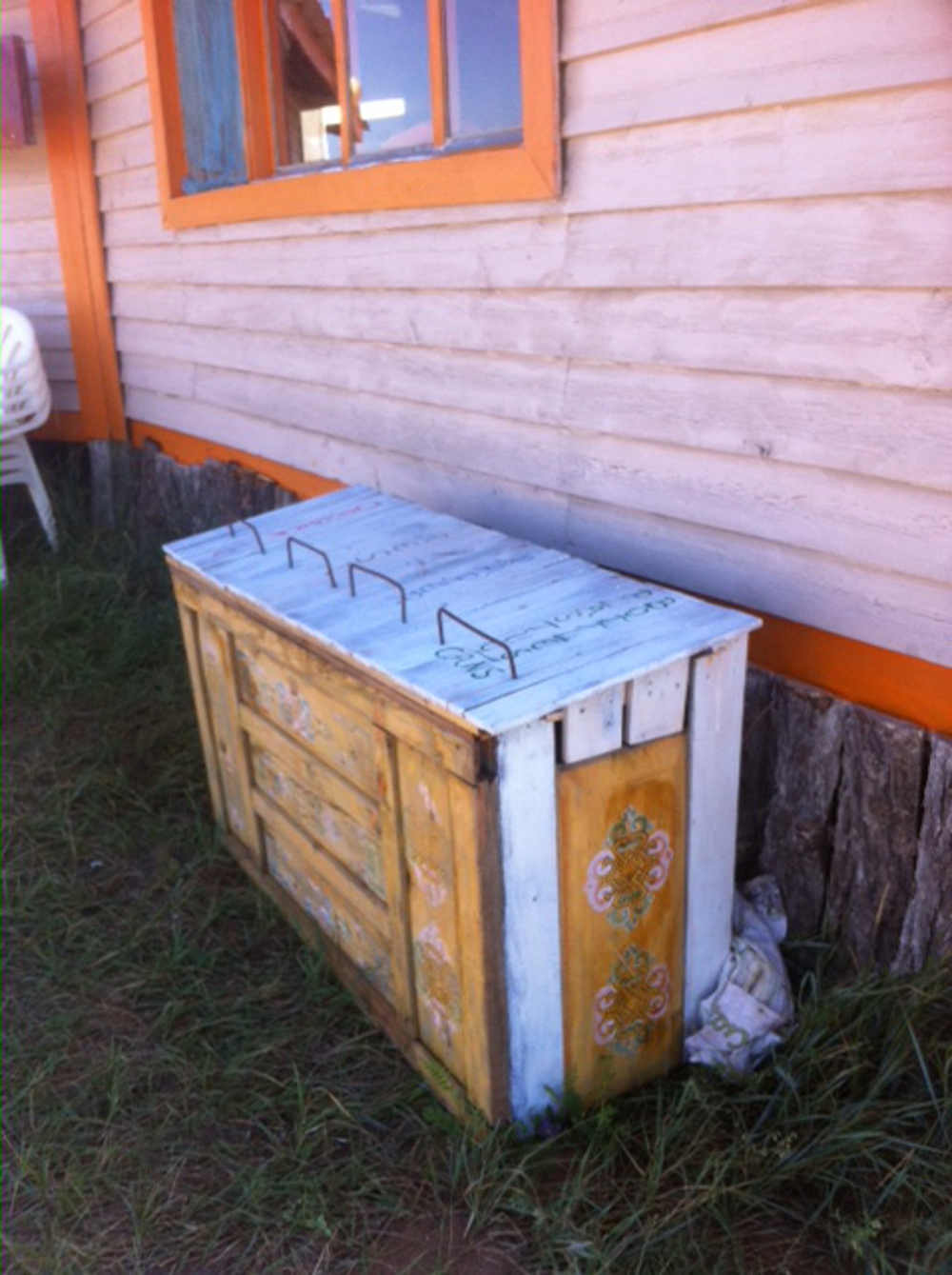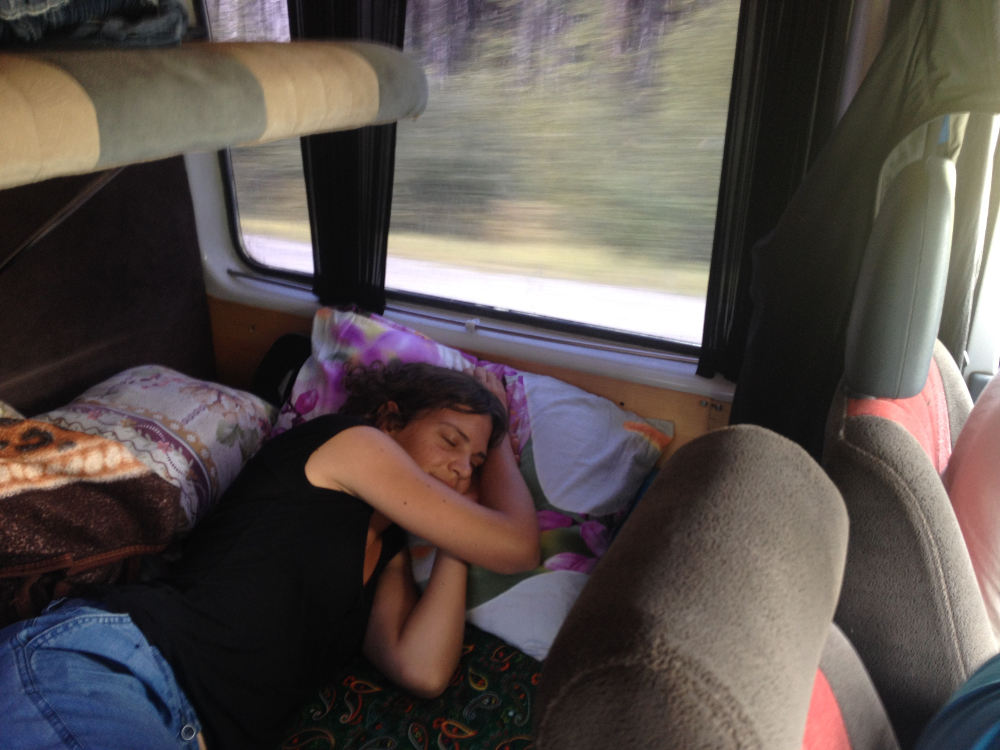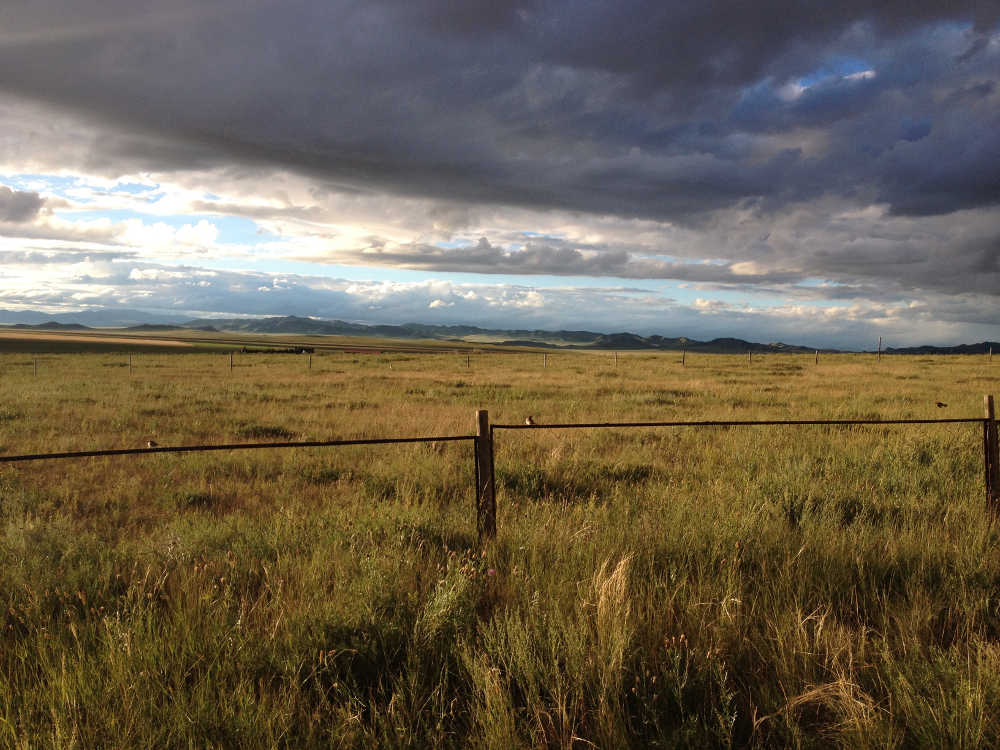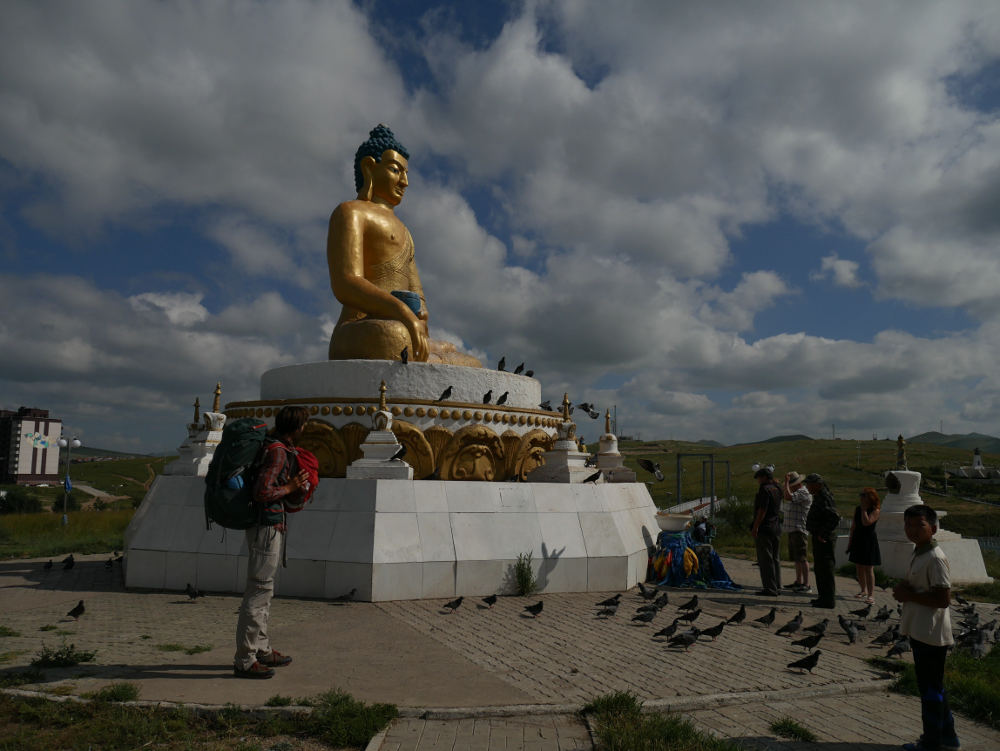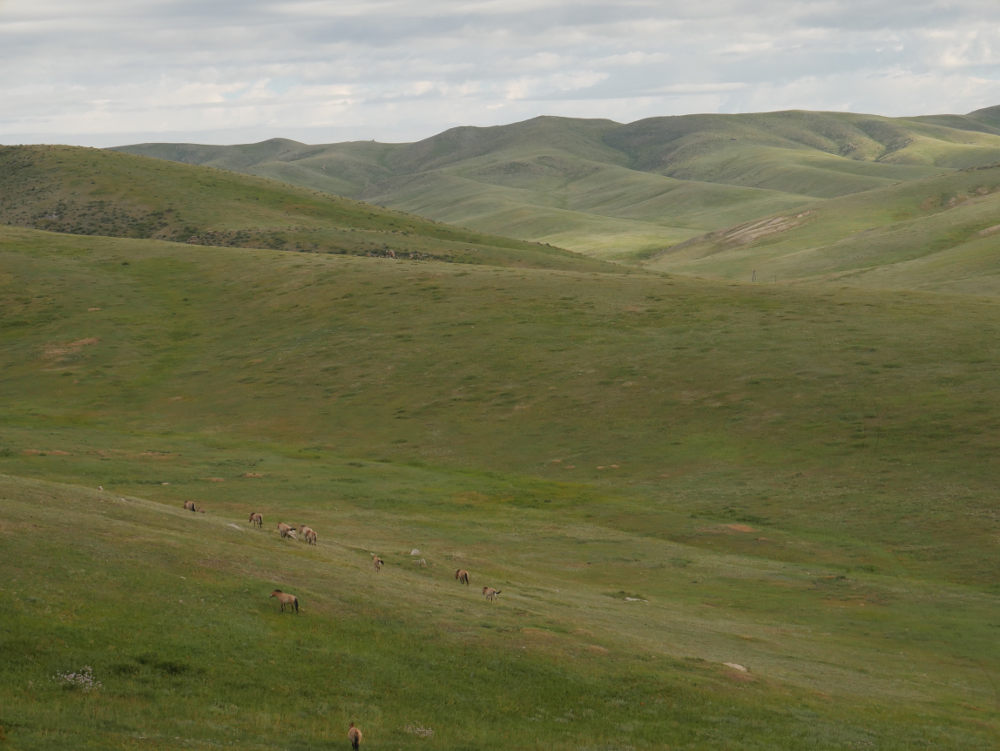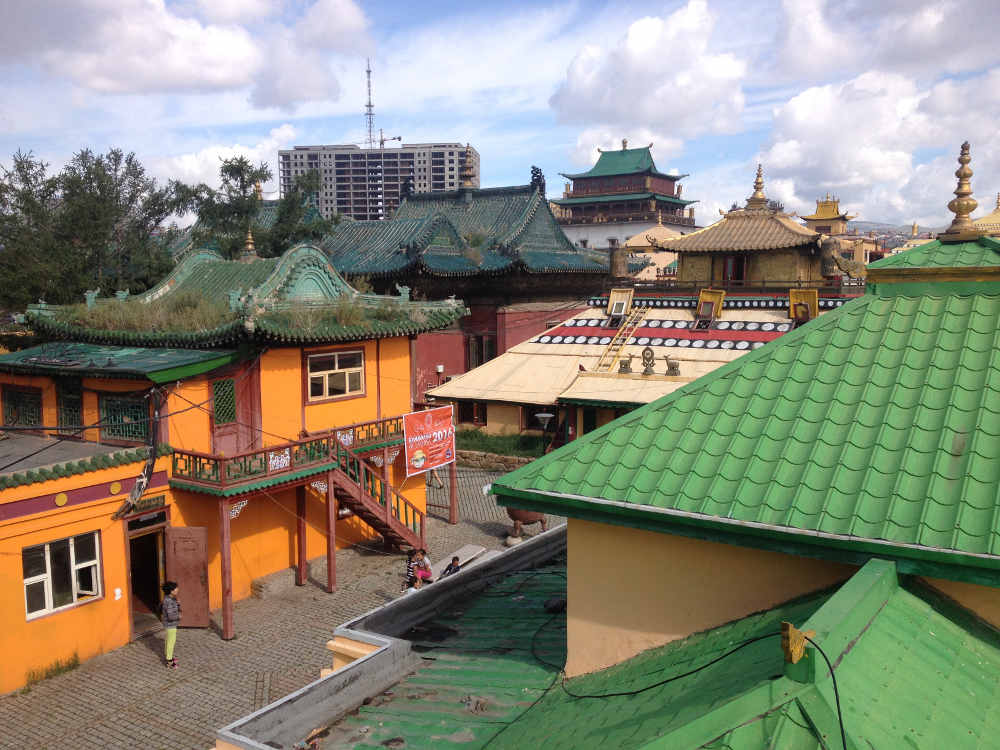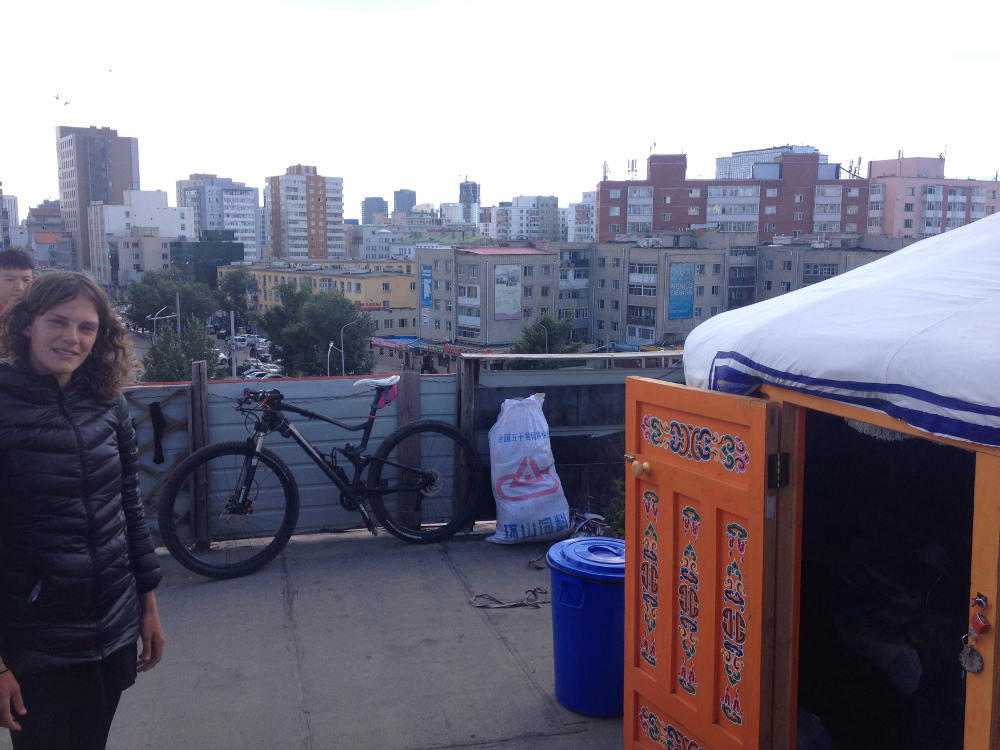Ulaanbaatar, Mongolia 15 August 2016
That’s what the people in Mongolia think, when they have a car full of people and stop anyway to squeeze us in. A true hitchhiker’s paradise! Before we hitched our way in from Russia we only knew about the horses, the steppe and Ghengis Khan. Ghengis hasn’t been around for the last 700 years, but he is as present in current-day Mongolia (his face is printed on every bank note) as the horses and steppe… as well as the yurts, the traditional tent-like homes they call “gers”. A third of the country still lives a nomadic lifestyle! As verocious as Ghengis Khan was, so friendly are his descendants (apparently Ghengis was a bit of a ladies man and now 10% of all Asian men linside the former empire are directly related to the 13th century crusader). Maybe that’s why all Asians look al.. ah bad joke. But in many ways Mongolia was the first kinda-culture shock of our trip. Not only because of the many gers and the vast and void landscape, but even more so because of the incredibly friendly nature of the people!
Not to say anything negative about the wonderful people in Siberia, which is where we left off our last blog entry with Jeroen feeling all better again after our Baikal retreat, it was the first time we felt like stepping in a different world. After hitching our way back to Irkutsk – first in one of those Russian Uaz vans, blasting across the bumpy roads of Olkhon island as if it were the German Autobahn, then with a group of Chinese tourists (Jeroen made their acquaintance when they came running after him for a picture after leaving the bushes for quick wee) and finally with a friendly mini-bus driver (one car of the Chinese tourist group broke down and it didn’t feel appropriate to yell “first in, first out”, so we voluntarily gave up our seats) – we decided to ridden our backs with the heavy load of the not so essential items we at first thought we wouldn’t be able to live without. The only pants we are now carrying are the ones we are wearing, which makes it all the more easy to decide what to wear each day. What wasn’t so easy was shipping all of it back home. The Russian post office was a Soviet-style reminisce of a bureaucratic nightmare. The only way we were able to understand what we were required to do in the first place, was a direct result of our lingering highschool French, as for some strange reason all the necessary paperwork we had to fill out was written in Russian ánd in French. We then had to individually weigh and write up a description for every single item, in three-fold, which was double checked by the rather unsmiling, yet thorough postal clerk. But it was well worth the effort, because the 5.4 kg that was on its way back to the Netherlands was now no longer on our backs. We hit a second language barrier in an Irkutsk restaurant for Jeroen’s birthday dinner. No French on the menu, but the waitress was more willing than her Soviet-style postal office counterpart, and translated every vegetarian item on the menu for us on her phone. We decided to order the lot, much to the surprise of our waitress, but she and her colleagues got a good laugh out of it, while we feasted on great Georgian food and wine.
In Mongolia, on the other hand, we didn’t experience much of any language, nor any bureaucratic, barriers. The Mongolian visa was a breeze, you go in in the morning and pick it up in the afternoon, and at the border everything went a lot smoother as well. On top of that, a surprisingly large number of Mongolians speak at least a few words of English. On our way to Mongolia we were lucky enough to meet a wonderful guy from Kyrgyzstan with his nephew, who was driving a load in his van to eastern Siberia. While the little guy was chatting away and giving helpful advice on when and where to overtake the cars in front of us, Linda got comfortable on the bed in the back. With amazing views from the road on the Baikal lake, the 500km journey to Ulan-Ude flew by. We pitched our tent out in the field somewhere and the next morning we caught a couple of shorter rides further south, from a guy who was on his way to a Budhist temple, maybe brushing up on his karma, a guy who may or may not have been employed by the kgb and a couple who threw money out of the window of their car on the top of a hill, probably in an attempt to buy off possible car crashes. Fastening ones seatbelt might be the safer bet, but who are we to judge? They did drop us off safely on the last stretch towards the Mongolian border, so who knows, it may have well paid off.
After a bit of a wait a car finally stopped. Unfortunately to head out in the wrong direction, but not before 4 drunken Russian men and 1 woman got out, who joined us hitchhiking further south. They enjoyed our company more than we did theirs, but they managed to get us on a mini bus at no charge (at this point we didn’t have a single Ruble left), which brought us all the way to the forelast Russian police patrol station. We were instructed to wait on the side of the road, which gave us the opportunity to observe the everyday life of a Russian patrol agent. The older, somewhat heavier guy was majestically waving cars to a halt with his patrol stick, while the younger, much thinner guy was instructed to sweep the side of the road. The senior patrol officer took the job of the junior officer rather serious and we could feel that the junior guy would someday do exactly as his superior, if only out of spite for having to sweep every inch of what wasn’t more than a strip of asphalt along the road. But they got us a ride for the last bit and as we got out and walked up to the border, we were told we weren’t allowed to cross on foot. Here the helpful nature of the Mongolian people came shining through, as we were immediately invited into the first car in line to cross. It might not have been a completely altruistic gesture, as the guys tried to convince us we would have to pay a fee to cross the border (through them). We weren’t buying it and “naively” proposed to simply walk up and ask one of the Mongolian border control agents, their English was perfect by the way, which was enough in itself to drop the money question.
We got through without any hassle, but we were also tired after a long day of traveling and as we were walking along the road to find a place to camp, we half-seriously raised our thumb. To our amazement, the first car immediately stopped. The driver let us out at a nice spot near a small lake, where we played a game of poker with the thick wad of Mongolian Tukruk we got from the ATM (1 euro is around 2300 Tukruk) and woke up the next morning amidst the goats and horses that came down to the lake to drink.
From there we felt like everyone in Mongolia was rushing to our halt, practically every car stopped, no matter how many people were in the car. Our ride into the capital city Ulaanbaatar was no different, the two kids in the back slid to the side and with the 4 of us in the back we were happily cruising through the countryside. Our driver invited us midway into a ger for a traditional deep fried goat meat bread roll and some lovely fermented horse milk. We already had some “kumis” in Kazakhstan, which they call “airag” around here, which had carved a deep lasting memory that made it hard for us to keep up our not so genuine smiles. The taste of airag is rather… intense. Think of a more sour version of butter milk or kefir, add the tingling mouthfeel of a sparkling wine gone bad, throw in the flavors of the goat hide in which it is churned and some of the other delicate aromas you get from having it sit in a ger for a few days at room temperature. Bottom’s up! We just pretended the milk was meant to be shared and passed the cup to our host after we each took a small sip. He probably read the insuppressible discomfort in our faces, because when he passed the cup to his son, he downed the cup in one single go.
It is the staple food in the Mongolian diet and the Mongolians love it, all animal products, although in Ulaanbaatar you can find any food you can think of. One thing you can’t find in the capital city is the right of way of the pedestrian. You could be on a zebra crossing, with a green light, having a car coming from behind, overtaking you and cutting you off in your footsteps, which would be a very normal thing. The more modest drivers would give you a friendly honking of the horn, if they would approach at high speed, to push you back onto the pavement, midway on a zebra crossing. But when you put your thumb up, they turn into the most loving creatures, some kind of a weird Dr. Jykkel and Mr. Khan type thing we suppose.
Close to Ulaanbaatar, next to the Kustai national park, we did some slave work volunteering in a guesthouse, which was a rather depressing experience. When we were expected to work more than the max 4-5 hours per day (more like twice as much), we thought “eerhhm.. yes… we can”. We were working on a nice project and enjoyed doing it. When Jeroen couldn’t work on his supposedly free 6th day due to a fever, he was asked to pay for the night. At this point we were more like: “ehm…no… we can’t”. It took the fun out of volunteering while traveling for us, at least through websites like workaway. But we did have a great time with the other volunteers, ánd we built one hell of a trash can!
